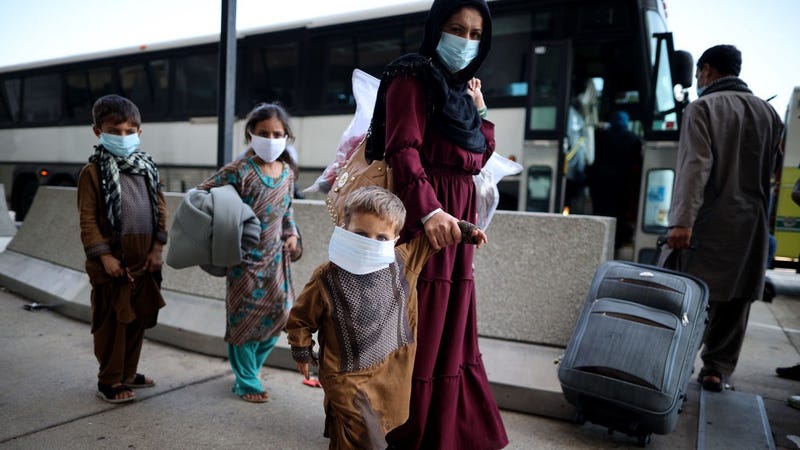
The future of Afghanistan and the allies left behind following the U.S. withdrawal on Aug. 31 continues to be at the forefront of the minds of those who fought there.
The Iraq and Afghanistan Veterans of America hosted a Facebook Live event on Sept. 3 with its CEO Jeremy Butler, Kristin Rouse – an Army veteran who served three tours in Afghanistan – and retired Army Gen. David Petraeus. They discussed what the Taliban takeover of the country means to those who served there and how veterans can help their Afghan allies who want to leave.
“From the fall of Kabul on Aug. 15 to the 31, I think so many of us were involved with communicating with our interpreters, Afghans we worked with, and hearing from them their fear,” Rouse said.

She noted, in early July, that American troops just disappeared from Bagram Air Field in the middle of the night without “a handoff to Afghan forces or government.”
Since then, Rouse said she has spent many sleepless nights trying to get friends she relied on while in Afghanistan out.
“I felt crushed and heartbroken and such a sense of unfinished business,” she said.
Petraeus, who commanded the International Security Assistance Force and U.S. forces in Afghanistan from 2010 to 2011, called the American withdrawal tragic, heartbreaking, and disastrous.
“We didn’t know it was going to end this way,” he said. “But at the end of the day, everything we worked so hard for with our Afghan partners, coalition allies really was swept away.”
The last time the Taliban was in control of Afghanistan, they acted like it was the 7th Century, he said.
“Very medieval, ultra-conservative interpretation of Sharia law, turning soccer stadiums into execution chambers and all the rest,” Petraeus said. “We hope that is not going to be the case.”
He also said that 66,000 Afghani service members lost their lives fighting the Taliban over the course of the last 20 years.
Petraeus said he and others predicted the “psychological collapse” of Afghani forces “when they start to realize no one is coming to the rescue, no one has their back.”
According to Petraeus, the suicide bombing at Hamid Karzai International Airport on Aug. 27 that killed 13 American service members and 200 Afghan civilians who were trying to flee was the first lethal act of the ISIS-K terror group since the Taliban re-took control of the country.
“We have to keep an eye on them,” he said. “We have to put pressure on the Taliban in a variety of different ways."
Among the ways pressure can be applied is slowing the international aid that Afghanistan receives, Petraeus said. Petraeus also predicted a humanitarian crisis and food shortages this winter because funding for the Taliban will not be there.
He also highlighted the enormous moral obligation that America has to get those who helped it out of Afghanistan.
“There is a lot that is a mission that must continue,” he said.
Service members should feel “quietly proud” of what they did while in Afghanistan, Petraeus said.
“I think it’s really important to realize that all we sacrificed for was not in vain,” he said.
Rouse said she both worked with and managed interpreters while serving in Afghanistan and advised those in touch with Afghan allies to tell them to shelter in place.
She also urged veterans trying to get Afghan allies out to link up with the Association of Wartime Allies.
“We have heard stories of people who have been killed,” she said. “It’s starting to come out. But, can we name the names, show the pictures without endangering the family members on the ground.”
Among the other groups helping to evacuate Afghan allies are No One Left Behind and Team Rubicon, Rouse added.
“It is us, Iraq and Afghanistan Veterans of America, it is this generation of veterans and those still serving who will really decide what this means,” she said. “We have to make a conscious choice because there is so much pain, there is so much heartache.”
Petraeus also acknowledged that there has been some damage to American creditability as a result of the withdrawal from Afghanistan.
“I think the military will have to be part of the effort to demonstrate, so its deeds not words that we are a dependable, reliable, capable and determined partner,” he said.
Reach Julia LeDoux at Julia@connectingvets.com.
Want to get more connected to all the news and resources Connecting Vets has to offer? Click here for our weekly newsletter.




